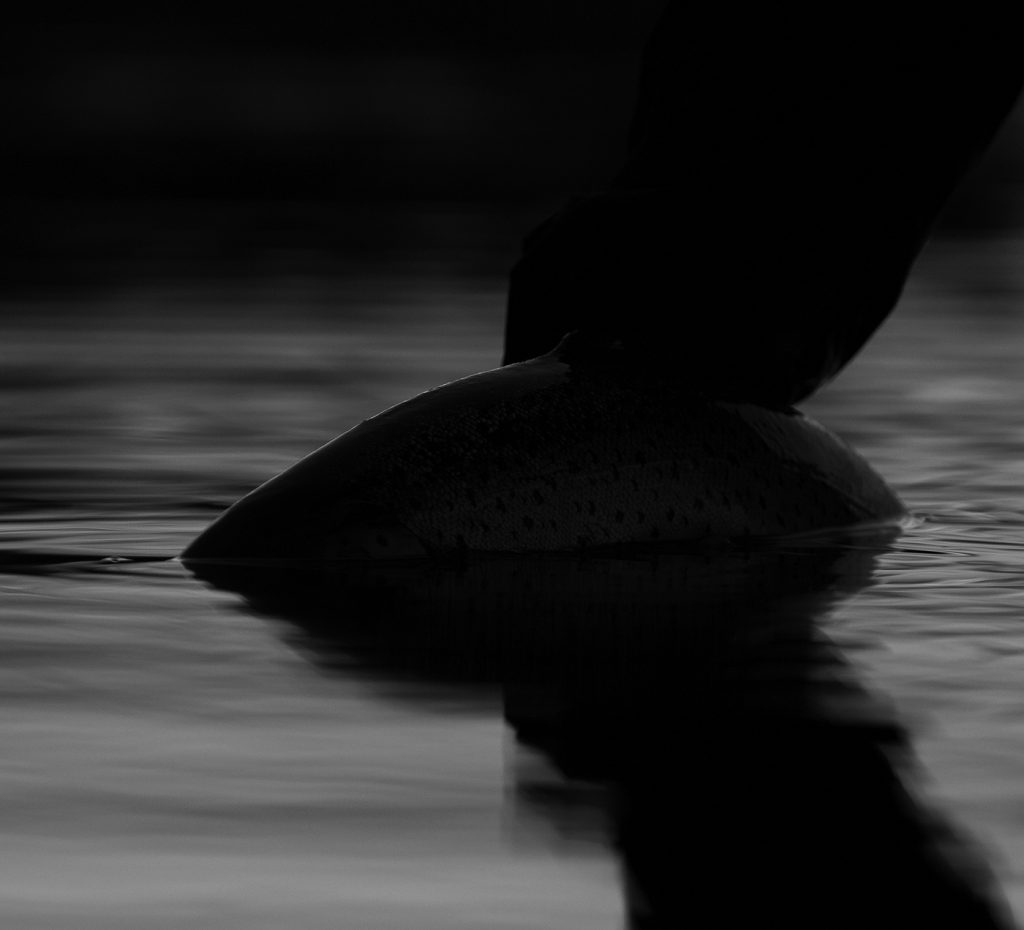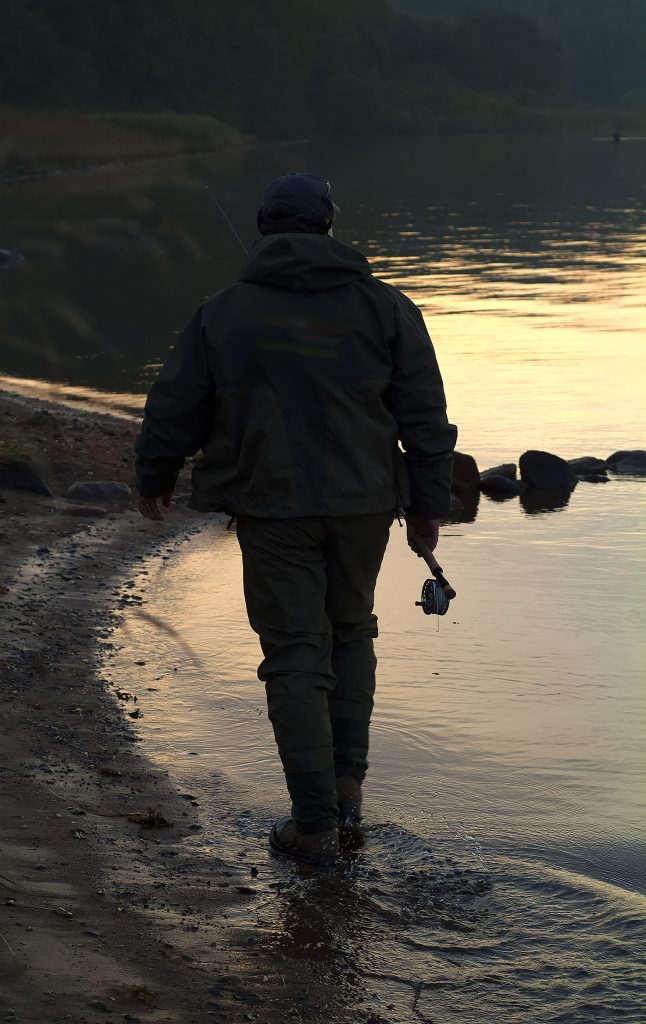
The question is not how to fish, but why you do it. The author and his fishing buddies do it out of necessity. It’s more important than life and death to them to escape the human world, step in to water and wave a stick. Left on the shore is their misery and worries. Standing in the water they find freedom, healing and occasionally a fish.
Battles are lost and won with tongue in cheek and always celebrated with mountains of cake and an endless stream of fresh espresso coffee. To the band of brothers it’s more important who you fish with than how big the fish is; except for the ones lost.
You may not learn a lot about catching more and bigger fish, but reading these stories is like holding a mirror up in front of yourself getting a little wiser. The small why is a big one.
- This artickel is written by Danish photojournalist Søren Skarby

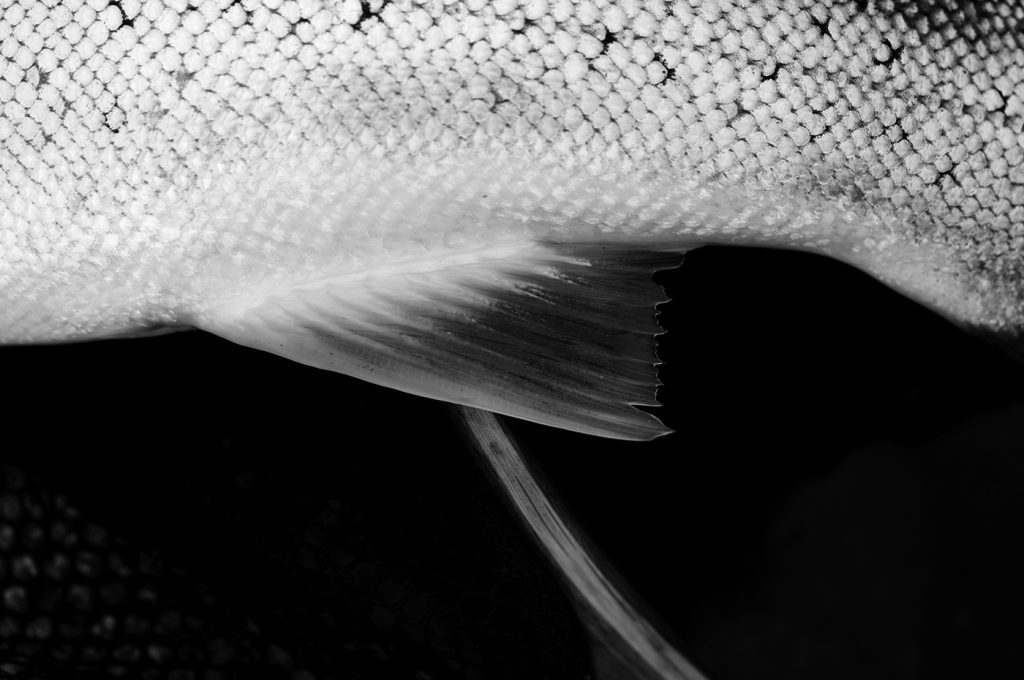
“It was crazy”, said the Bricklayer on the phone, “There were boils, splashes and big rolling fish all over the place. I think they were all there, garfish, codfish, flounder, saithe and some pretty substantial sea trout.”
He had spent a night standing in the channel and was calling in the afternoon sitting with the day’s first cup of coffee on the table having what he calls fishing hangover’s, lack of sleep.
“The only person I met was a fly fisher who caught a six pound sea trout. What a beautiful fish, it should have been you.”
The Bricklayer is always bait casting and we both know that on such a night fly-fishing beats any other way of fishing. Damn, I was at home with my daughter watching football and tying flies.
“And the current?” I asked but already knew the answer.
“Eastbound, but the tide was rising. It was a bit strange.”
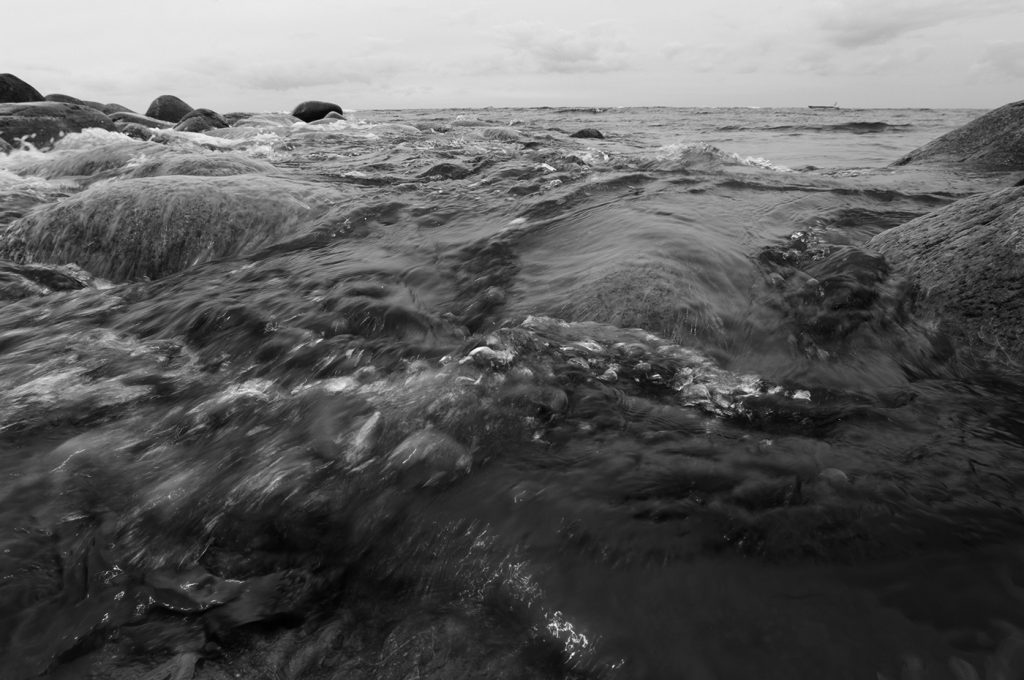
Those nights are really rare because so many things have to peak at the same time. First there’s the wind, it has to come from a corner allowing you to cast, or you won’t be able to land the fly precisely a bit up stream from the boils.
Since we are standing in the dark the wind can’t be too strong either because the waves will make it impossible to see the boils. Then there’s the ever-mysterious tidal current that has to be eastbound and strong. Normally that spells a falling tide, but it’s occasionally rising and then the odds of a perfect night are pretty high, if there’s not a lot of dead drifting seaweed and if you are there. It was the last box I didn’t tick for that night. I sighed as the Bricklayer kept telling about all the takes he had.
The Bricklayers story made me think about how we have learned what the ingredients for a perfect night are and the answer is pretty simple, experience, loads of experience.
My fishing buddies and I have spent an insane amount of time on that 400 yards long stretch of the channel, we know every little rock and bank. We constantly exchange observations about conditions on our trips and it all adds up. Recently we have discovered that moving 30 yards or even less can change the result drastically depending on which way the current runs.
Something is making the fish and especially sea trout stay in a very small area. We still don’t know what makes them do it, but for sure we will find out. It’s only a matter of time spent waving a rod.
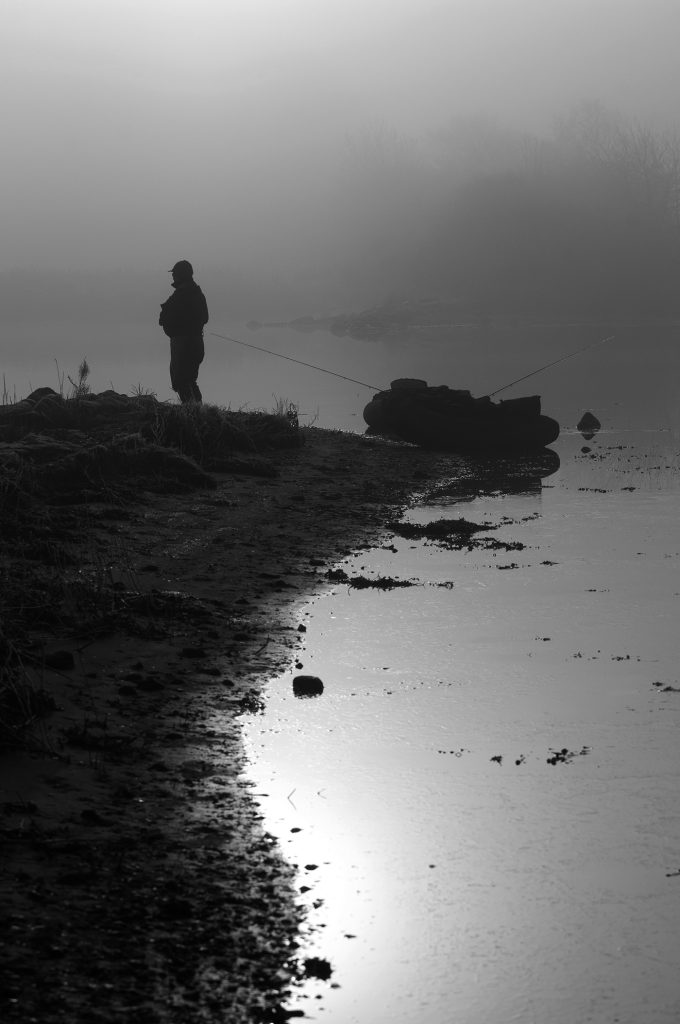
Some years ago I spoke with my daughters grandfather about his childhood. He is an Inuit from Greenland and grew up in a small village. Life was hard and poor, but everybody survived with that unbelievable stamina that has impressed me every time I’ve been to the Arctic. The village doesn’t exist anymore.
“They closed it”, he said and meant the government in our capital. It was part of a big plan; the inhabitants of Greenland were going to live in towns with much more public services like schools. My daughters grandfather looked at me with grief in his eyes.
“It killed quite a few of those from the villages.”
At first I didn’t understand a word, but the more he explained it, the more I thought it made sense. When you are a hunter you have to know your hunting grounds, where the prey is, in all kinds of conditions. It’s not something one man can learn in a lifetime, all knowledge has to be passed down through generations. That sum of experience makes it possible to survive the sometimes-harsh conditions of the Arctic.
The Inuit villagers lost their inner map when they were forced to move, their sense of belonging to a place. It wasn’t starvation of the body that made some of them perish, but starvation of the soul. Some died trying to find comfort at the bottom of a bottle, others just lost the lust for life, and simply dwindled away.
Today, more than 50 years later, the most common disease in Greenland is being homesick. Youths have to move from their village to a town when they want to study. A lot of them long for home and the drop out rate is alarming. It’s such an integrated part of the culture that you belong to a place, to your hunting grounds.
Are we any better? When it comes to fishing, not at all. My buddies and I go to the same places again and again. Sure we talk about fishing at other stretches, but it’s nearly always just talk. Standing on an unknown stretch of coast makes us feel lost, we have no clue where to begin and which flies to use. Do we have to wade to the first bank or is it at the second that the action starts?
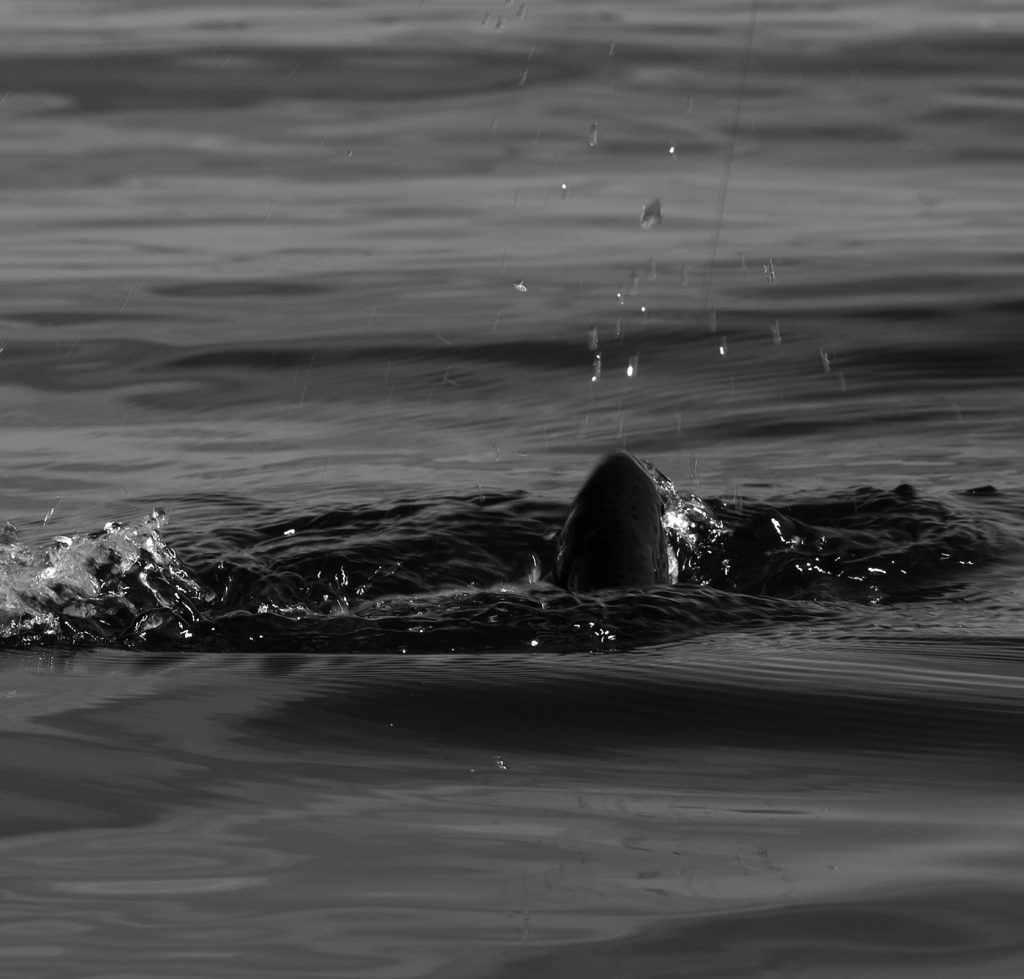
Then there’s the tide, time of year and day, the big stone only visible at low tide, wind and current, all the things you have to know and it takes years to learn it. Still, it would be nice to find other spots that we could add to our home waters
Then I did it. After studying maps of current and the depths of water the gear was loaded in the car and off I went. From my arrival till I left again it was one long struggle. The only half-mile long walk to the tip of land I had found on the map was partly in mud and water. Nope, I couldn’t see it on the map.
When I arrived I was nearly marinated in my own sweat from walking with waders on and that was just the beginning. The wind wasn’t very strong, but it came from a corner where it could run freely over water for a long distance. The result was that the waves stirred the water and bottom to some thing looking like very strong tea with milk at the tip where I wanted to fish.
I retreated to a calmer place and was still fighting the wind that blew the line out of my line basket several times making it tangle and curl. Stubborn as I am I kept fishing until it was so dark that I couldn’t see my hands. There was not just even a single take in all that time. And why? Probably because it was the wrong time, wind and everything else and all that because, I didn’t know from experience when and how you have to fish that exact spot.
Two days later I tried again in a new and unfamiliar place. The access was a whole lot easier since I only had to step into my waders pick up the rod and walk a few yards into the water. To my right was a low bridge between two islands; under it the tidal current is compressed to a fast running deep river.
As I waded out there were small fish jumping all around me. Juvenile garfish are fun to watch when they swim just below the surface. They’ve got a look in their eyes that says that they are perfectly aware of that the whole world wants to eat them; which is pretty close to the truth. I make do with tickling them with the tip of a finger watching them wriggle away at the speed of lightning.
The next two hours or so I learned a lesson about fly-fishing that stretch, the tide has to be low. As the water rose I had to retreat backwards getting further and further away from the current. After a break by the car where I sipped coffee and slapped mosquitoes I started fishing again. The wind was gone, there were only occasional cars on the bridge, it was nearly dark and I could start using our most underestimated sense when it comes to fishing, hearing.
Boils are not only boils, there’s a distinctive difference between the species of fish. You can’t hear garfish; they are only making silent whirls in the surface and are not very active in the dark. Codfish sound like a small round stone landing vertically in the water, like a big wet kiss. The small ones do a lot of kissing in the dark. Flounder makes small discreet kisses as they follow shrimps to the surface in the dark. I would love to own a picture of my expression of surprise the first time I caught a flounder on a floating fly.
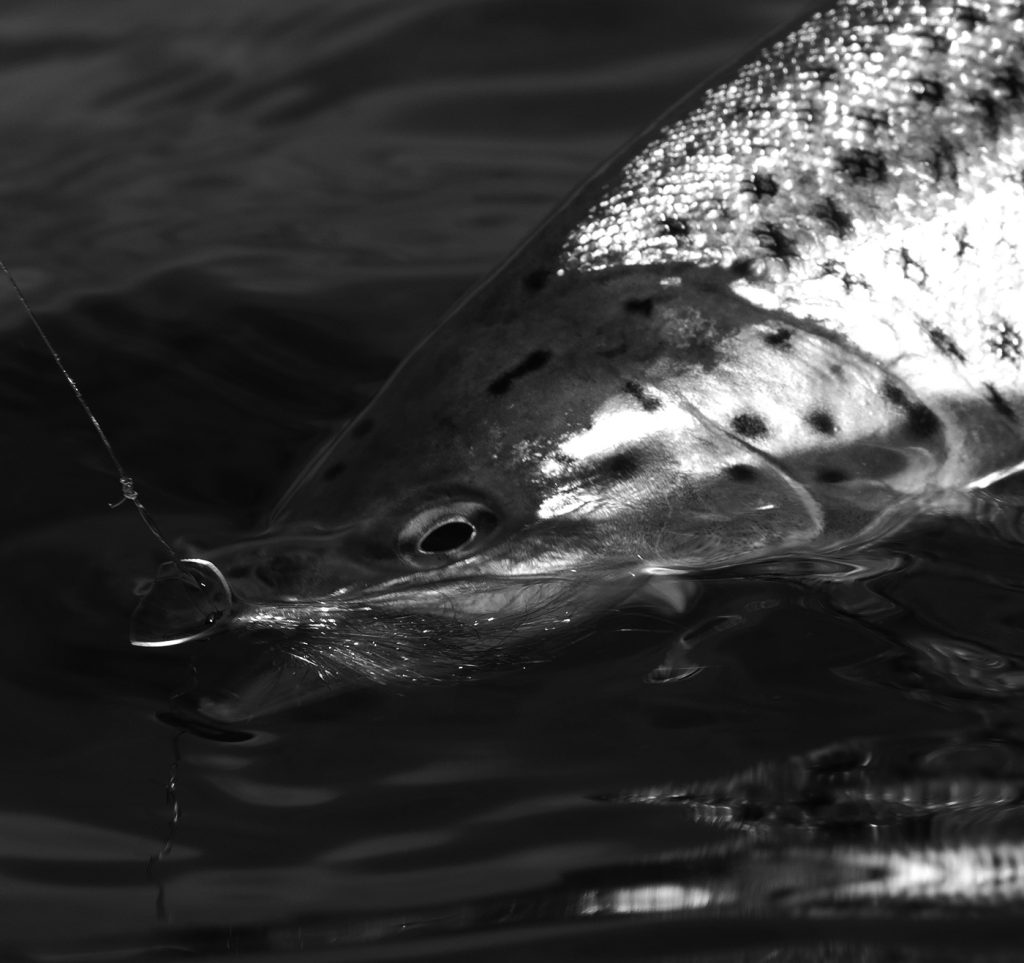
Then there’s the trout, they act like grayling in freshwater. A big splash is a big fish, when it’s a roll making waves there’s something huge down there. I heard decent splashes and cast in their direction, but soon I realized that they were far beyond my reach. That became clear when the beam of my headlamp lit up the bridge, the fish were under the bridge making one boil after the other. There was no way I was going to get in contact with them with a fly rod.
For once I had a spinning rod in the car and I switched them fast. Then I crawled down a steep ramp from the bridge swearing all the time because of the fact that I should have done some research in daylight. The headlamp was very bright, but it was a troublesome climb. Standing at the base of the bridge I started casting, trying to figure out where the trout were. The current was so strong that the lure, one of One Arms constructions, got flushed away from the right spot very fast. After half an hour the frustration made me give up and I promised myself to return in daylight to learn more about the place.
The next trip with a rod in hand was to the channel. Everything was familiar now and I caught two decent sea trout. Most importantly I felt the comfort of knowing my hunting ground, my home water.
